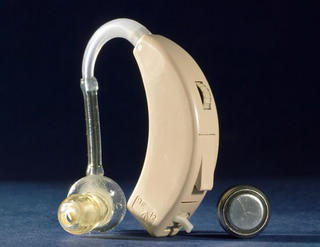The Medical Humanities Association conference took place in Truro in Cornwall this year, at the Knowledge Spa -- a fancy new facility attached to the Peninsula Medical School. The 'Spa' bit turned out to purely metaphorical, but it is such a lovely part of the world that it was a suitably invigorating environment for a conference in the absence of a jacuzzi for delegates (although some of us had a paddle in the sea at the opening-evening event at St Ives!).
I won't blog every session I attended, but the plenary speakers' sessions are certainly worth a mention.
***
I'll start with
Abraham Veghese's talk. My expectations were high after we discussed his book,
The Tennis Partner, at the Purple Coat Club last month. He did not disappoint. His talk was carefully crafted and full of interesting anecdotes. He began by saying that it sometimes takes years of practice for doctors to realise that are part of 'story' and often become spokespeople for disease. Clearly doctoring is useful for writing, but is writing useful for doctoring? His answer was an unequivocal 'yes'. He went on to analyse the value for doctors of story, character and metaphor.
On story, he said that conflict is a key ingredient. Story has to have conflict, crisis and resolution. Patients' everyday lives are not story, but when a patient walks into a doctors' surgery there is story (the potential for bad news lurks). Patients' stories are important to them. They wait for an epiphany. Verghese said that the real challenge was when there is no resolution -- no cure to offer. Referring to his work with AIDS patients, he said that he had come to the realisation that 'in not having anything to offer, you have everything to offer'. He used a wonderfully apt analogy for the illness experience: imagine you are robbed of everything that is dear to you. If the police come knocking at your door the next day and say, 'we caught the robber, here's all your stuff back,' you will be cured but you will not be healed.
On character, Verghese said that doctors use lots of traits to decide about character, but most telling is the patient's story. We teach medical students to translate these stories into medical narratives for diagnosis. In so doing, he said, we lost the patient's story: the language of science doesn't keep the voice of the patient alive -- an important element of the story is lost.
On metaphor, he pointed out the richness of metaphor in medicine and called for new metaphors for our age. He argued that the metaphors currently used in medicine do not reflect the patient's experience and that we should be actively engaging our imaginations more often to come up with new metaphors.
His talk was based on
his paper in the Annals of Internal Medicine which I recommend to anyone interested in medicine, creativity and narrative.
***
Another of the plenary speakers was
Lorelei Lingard of the University of Toronto. Called 'A Rhetorician in the Operating Room', her talk gave a fascinating insight into the practical uses of discourse analysis. She took as her starting point the notion that language performs social actions (allows identification with groups and professions). She analyses talk patterns and tensions in the operating theatre to identify major catalysts of tension. She focused in her talk on notions of professional roles. She used examples to show how people constructed the roles of others in the operating theatre totally differently (and generally more negatively) to the way they constructed themselves (e.g. surgeons' perceptions of nurses andexaggerated), and this was exagerrated in trainees. Interestingly, everyone saw themselves as the patient's advocate.
Usually, rhetoric is used purely descriptively in discourse analysis, but what I liked particularly about Lingard's work is that she (and her team) designed an intervention. The used written scenarios and video dramatisation of tense incidents to examine the assumptions of motivations behind what people say. They were able to come up with a team checklist designed to target communication failures. Initial results show that incidents of tension in the operating theatre were reduced by half. She ended off her excellent talk by reflecting on the role of the 'outlander' (someone who becomes a member of the team without engaging in the studied activities), and how difficult it is to remain objective.
Her research is published in Medical Education (abstract available but full text requires subscription).
***
Paul Robertson's talk 'Music and the Brain' was a real treat. We entered the lecture theatre to the harmonious strains of his violin. His talk was an exhilarating trip through his various collaborative projects which blend science and sensation including
Songtrees and
Swansong.
***
Yes, the talks were very inspiring and I enjoyed all the sessions I attended. (I also gave a paper on using poetry and art in medical humanities education which was fun to do). However, the real value was meeting and talking to such a diverse range of people. Medical Humanities is a fantastic umbrella for bringing together and valuing expertise from across the lines along which education is usually so divided. Where else would you find artists and anaesthetists, poets and paediatricians, sculptors and surgeons, PGs and GPs?
Next year's conference is being held at the Southern Cross University, New South Wales, 27 to 30 July 2006. It's called 'Taking Heart' and precedes the
Byron Bay Writers Festival.


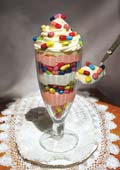


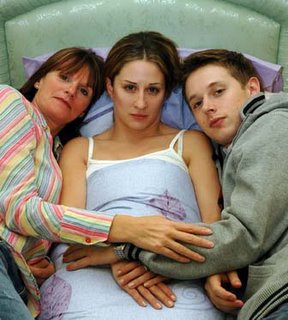
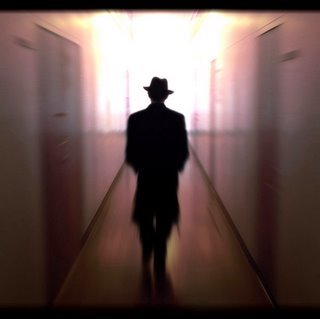


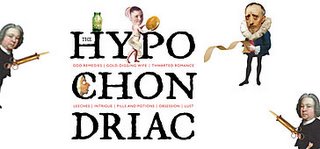
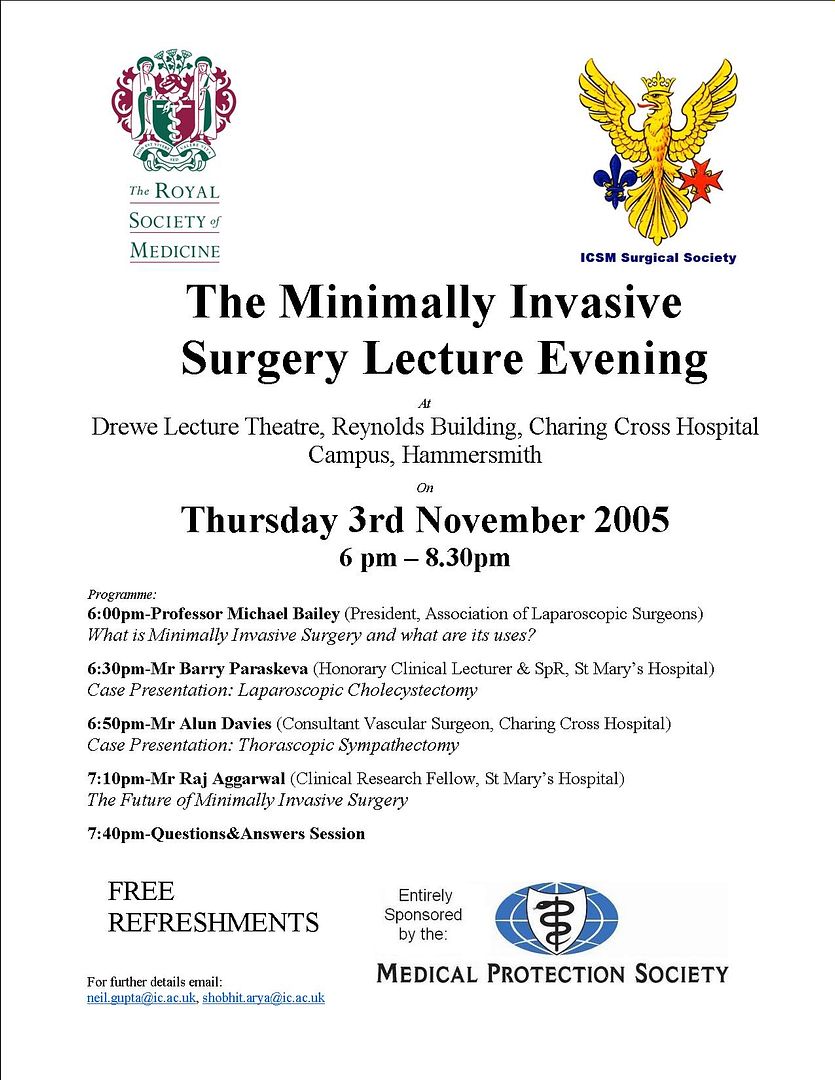

 It tells the story of Jonny Kennedy, a 36 year old man trapped in the body of a boy whose skin detaches from his body with slight trauma, the increased skin turnover eventually giving rise to cancerous change. This condition is known as '
It tells the story of Jonny Kennedy, a 36 year old man trapped in the body of a boy whose skin detaches from his body with slight trauma, the increased skin turnover eventually giving rise to cancerous change. This condition is known as '







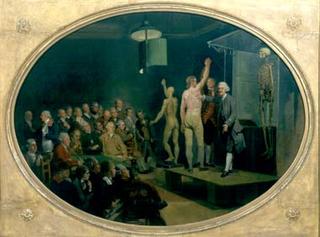




 I haven't yet discovered all the passages and intend not to: finding them by chance is a more surprising and satisfying endeavour. My favourite so far prefaces the orthopaedic chapter and tells of the surgeon who labels his patients 'hags', and sets off irately down the ward, abandoning his humanity with every step, his fury arising from his realisation that he is letting his humanity go. The author of the chapter comes to their own realisation when exhaustedly collapsing onto a patient's bed: when the patient moves over to make room, they grasp the notion that the hags must make room for the doctor, and vice versa - 'they are all in the same bed'.
I haven't yet discovered all the passages and intend not to: finding them by chance is a more surprising and satisfying endeavour. My favourite so far prefaces the orthopaedic chapter and tells of the surgeon who labels his patients 'hags', and sets off irately down the ward, abandoning his humanity with every step, his fury arising from his realisation that he is letting his humanity go. The author of the chapter comes to their own realisation when exhaustedly collapsing onto a patient's bed: when the patient moves over to make room, they grasp the notion that the hags must make room for the doctor, and vice versa - 'they are all in the same bed'.
